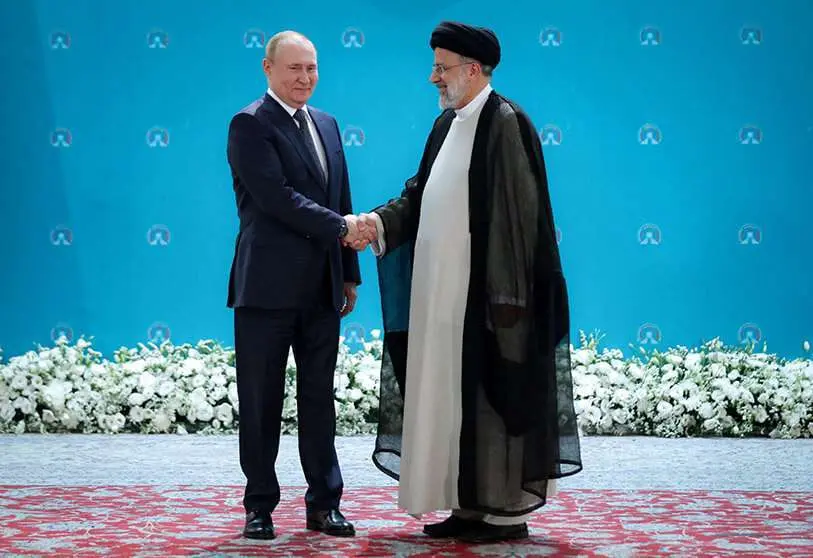Iran and Russia plan to create an OPEC for gas exports

Negotiations between Iran and Russia on energy issues are entering the home stretch. This was announced by the Persian deputy oil minister, Mohsen Khojasteh-Mehr, who is also director general of the National Iranian Oil Company (NIOC). The terms of the deal would allow the parties to form a common front for liquefied natural gas exports in a global context of tight supplies and soaring prices. Both sides stand to gain: Moscow would be able to channel Western sanctions through Tehran if the nuclear deal is concluded, and Tehran would become a regional gas hub.
In July, Russian President Vladimir Putin's visit to the Iranian capital, where he met in Astana format with his Turkish and Persian counterparts, Recep Tayyip Erdogan and Ebrahim Raisi, not only served to discuss the situation in Syria, but also to deepen the energy partnership with the Ayatollahs' regime. The energy giant Gazprom and the Iranian National Iranian Oil Company signed a Memorandum of Understanding (MoU) sealing a $40 billion Russian investment.

The agreement outlined in Tehran contains four key lines that, if implemented, would allow Russia to set up a second cartel of energy exporters similar to the Organisation of the Petroleum Exporting Countries (OPEC+), where its influence would be decisive in decision-making within the group, despite being an associate member. The Kremlin would gain weight on the international stage and pave the way to mitigate the avalanche of sanctions imposed by the West after its invasion of Ukraine.
Under the draft, consulted by the OilPrice portal, Russia commits to assist Iran in the development of its gas field facilities on the island of Kish and in North Pars, located in Persian Gulf waters, to the tune of 10 billion dollars. Russia has also agreed to help upgrade the South Pars gas field, discovered on the maritime border between Iran and Qatar. An international consortium led by France's Total has been working on this site since 2016, but after the 2015 nuclear deal was broken, it abandoned the project for fear of sanctions.

Gazprom also secured its participation in the construction of pipelines and other gas facilities. However, the most important point of the draft is that Russia is committed to pressuring other powerful regional players in the energy market with the aim of integrating them into this strategic alliance, according to OilPrice, which could take the form of a gas export cartel.
Some analysts do not believe that this partnership could reach such heights. Consultant Bijan Khajehpour notes in Al-Monitor that the deal is likely to result in a deepening of the energy and trade alliance between the parties, but qualifies that Russia does not have the funds or expertise to compensate for the lack of Western investment in the sector.

Iran would have the capacity to import 20 billion cubic metres of Russian gas per year, according to initial estimates. Part of this acquisition would be ready to be commercialised, taking advantage of the fact that the country is located in a difficult-to-improve location to export to countries such as Turkey and Iraq, regional neighbours that are going through a delicate scenario. Although most of it should be destined for domestic consumption, given that Iran recorded a gas deficit of more than 250 million cubic metres per day in the winter.
The plan has been interpreted as a Kremlin strategy to circumvent Western sanctions. There is only one problem, however, and that is that Iran has also been subject to these restrictions for years. Everything will depend on the reissuance of the 2015 nuclear deal, known as the Joint Comprehensive Plan of Action (JCPOA). The parties are optimistic about reactivating the terms of the pact, which would bring with it a partial lifting of sanctions on the Persian economy, but some issues have yet to be resolved.

For international investors, a return to the JCPOA would mean resuming trade relations that were paralysed in 2018, when Trump unilaterally withdrew the US from the nuclear deal. In a context of shortages, breaking into the Iranian gas market could ease the situation. However, Khajehpour recalls that Iran has neither the infrastructure nor the capacity to supply Europe despite having the second largest gas reserves in the world, just behind Russia.








